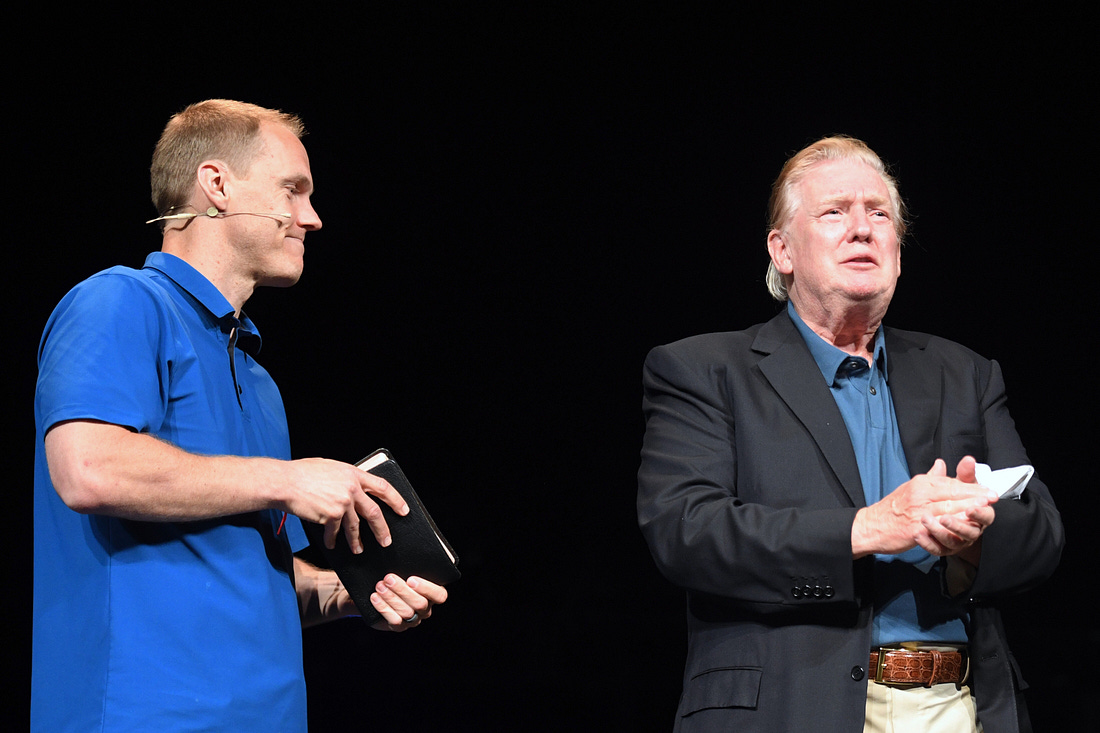|
Goodbye, separation of church and state
Churches now have extra special speech rights, thanks to Trump.
🗣️ Paid subscribers make Public Notice possible. If you appreciate our fiercely independent coverage of American politics, please sign up and support us. 👇
The Trump administration last week handed a huge win to conservative Christians who’ve been agitating for churches to be able to endorse political candidates without endangering their tax-exempt status.
If you’ve ever heard your right-wing uncle muttering darkly about the Johnson Amendment, he’s probably a big fan of this move. Named after Lyndon B. Johnson, who introduced it in the Senate, the 1954 law is part of 26 U.S.C. 501(c)(3) of the United States tax code. To be tax-exempt under that section, churches and nonprofits cannot “participate in, or intervene in (including the publishing or distributing of statements), any political campaign on behalf of (or in opposition to) any candidate for public office.”

The Johnson Amendment is not exactly a difficult law to parse. To keep that sweet tax-exempt status, groups can’t endorse political candidates. But evangelicals want to have their cake and eat it too. They don’t want to pay taxes, but they do want ministers to be able to climb into the pulpit and tell their flock who to vote for.
The Alliance Defending Freedom, the hard-right law firm with a truly staggering track record of getting the United States Supreme Court to validate their bigoted theocratic positions, has been urging pastors to just defy the law since 2008. But thanks to the Trump administration, they’ll no longer have to.
An insult to nonsense
During his aggressive courting of the evangelical vote during the 2016 election, Trump promised to repeal the Johnson Amendment. The topsy-turvy argument conservatives make as to why they shouldn’t have to follow the law is that stopping pastors from overtly partisan political campaigning is a violation of their First Amendment rights of free speech and freedom of religion.
For a moment, just take that argument as valid, even though it flies in the face of the whole separation of church and state thing. It’s still the case that no one is telling churches they cannot endorse political candidates until they are blue in the face. The government has placed no restrictions at all on their speech. The only consequence churches face, like all other nonprofits, is that they have to pay taxes if they want to be partisan political actors.
Luckily for those churches, however, both the president and the conservative supermajority on the Supreme Court are 100 percent on board with making sure right-wing Christians get whatever they want.
As a bonus, conservative Christians also have a Congress that’s happy to cede its power to Trump, which is why the Republican majorities don’t seem to care that he just wiped away part of the tax code. Despite the fact that only Congress has the power to repeal or amend laws, Trump didn’t even bother with an executive order on this one, instead announcing the major change in a court filing settling a 2024 lawsuit brought by the National Religious Broadcasters and other religious plaintiffs. Those plaintiffs wanted the Johnson Amendment declared unconstitutional, asserting it isn’t fair that nonprofits organized under 501(c)(3) can’t endorse candidates because other nonprofits that fall under different parts of the tax code get to.
It doesn’t take a big lawyer brain to see that an argument about different types of organizations getting treated differently under different laws is not exactly evidence of a nefarious plot to suppress religious beliefs. If 501(c)(3) prohibited churches from partisan politicking but let other nonprofits do so, that could be a constitutional violation — but it doesn’t.
Well, it didn’t until this court filing from the Trump administration. Now, churches can endorse political candidates and not lose their tax-exempt status, but secular nonprofits cannot. The First Amendment does not stand for the proposition that religious groups get extra-special treatment from the government. Indeed, the historical understanding of the First Amendment is quite

